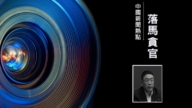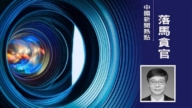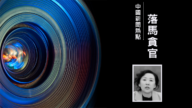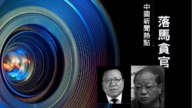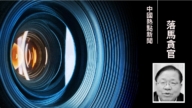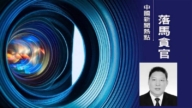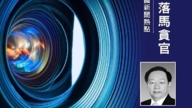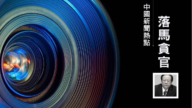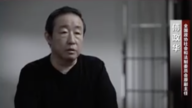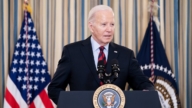【新唐人2014年11月15日訊】據外媒報導,在剛閉幕的APEC會議期間,美國政府內部在傳閱一份剛剛解密的重要情報。情報說,跡象表明中共高層發生了嚴重分裂。
《華盛頓自由燈塔》(Washington Free Beacon)11月11號報導,中共內部政治裂痕的產生,和全國性的「反腐」運動有關,還牽涉到中共高層,就如何清除幾名身居黨內高位的最高層官員,存在不同意見。以往這麼高級別的中共官員,是不會因為「腐敗」而落馬的。
報導說,這份報告披露,中共領導層的分裂和處理周永康有關。周永康曾是中共政治局七常委之一,還是中共最「資深」的安全部門主管,一度權傾朝野的周永康從7月份以來接受「腐敗調查」。
這份報告披露的時機,正值中共舉辦APEC峰會、招待世界各國領導人的時候,而且,中共呼籲加強「具有中國特色」法治的「十八屆四中全會」也才剛剛閉幕。《華盛頓自由燈塔》的報導說,「法治」這個西方名詞,被中共翻譯過來就成了「通過運用法律來維護黨的統治,而不是維護司法系統的獨立」。
美國情報部門選在這一時機解密這份報告,是否有深意呢?
中國問題獨立評論員李善鑒:「他在這個時候講這個事情,一定是說他看到了非常明顯的表現。那就是中國不同的領導人,他在講不同的話,而且這個話是明顯的針對另外一個派別的領導人,另外一個派別的勢力,而且這些話的分歧是相當相當明確。」
中國社會問題研究人士張健:「APEC峰會上,借奧巴馬之口可能不太方便去講,那麼借美國的情報部門,去把這話放出來呢,釋放了一個很強烈的信息,就是希望習政權遵守法治治國提出的根本。但是在中共統治下,法治治國是一個空談,也永遠是人民不可能實現的一個夢。」
報告說,中共領導層分裂的一個重要跡象是去年夏天,《長白山日報》在網絡版刊登習近平6月26號在政治局閉門會議中提到的,「腐敗與反腐敗的兩軍都在對抗,處於膠著狀態。」儘管《長白山日報》是吉林省長白山市中共的官方喉舌,但很快這篇文章被中共自己的審查人員刪除,表明文章透露了敏感的內部信息。
另外,就周永康是不是最後的大老虎,中共官媒也發出混雜的信息,顯示某些高層因為反腐運動感到緊張。
張健:「現在最大的徵兆就是說,中央行的文,和中宣部,和中共所控制的央視的媒體,還有人民網、新華網、環球時報它們是各唱各的調、各拉各的弦。習政權推出的和劉雲山推出的,是完全不一致的。習派的影子和江派的影子,在不同領域上、不同層面上都發揮出這種較量的痕跡來。」
報告還舉出中共黨內領導層分裂的另一個跡象,就是周永康案的調查時間很長。一般來講,只需要兩個月就可以完成對「貪污」指控的調查。但是周永康案遲遲沒有定論,致使外界猜測,是因為不同的政治力量博弈,導致僵持不下
張健:「尤其是這次的四中全會,又並沒有把周永康這個問題拿出來,就足以證明雙方在周永康這裡,作為最後一個陣地,在殊死的拚殺。」
報導還說,中國問題的分析人士一直討論,中共領導層分裂將是一黨專制崩潰的徵兆之一。這表示,這是從1949年中共竊取政權後,中國將發生的一個巨大的變化。
中國問題獨立評論員李善鑒表示,目前越來越多的中國人公開對中共表示不滿,退出中共和附屬組織,是更具意義的一黨專制崩潰徵兆。中國人的退出拔起了中共統治的根基,使它面臨隨時垮臺的危機。
採訪/朱智善 編輯/尚燕 剪輯/舒燦
US Intelligence: Signs of Division Among CCP Leadership
The recent unclassified intelligence report is said to be
circulating within the U.S. government during APEC,
according to foreign media reports.
It is said that signs of a serious division within the ruling
Chinese Communist Party (CCP) are emerging.
The Washington Free Beacon ‘s Nov. 11 report:
The political rift is being linked to a nationwide
anti-corruption, and to differences among top leaders over the
purge of several of China ‘s most senior leaders…
who held posts at senior Party levels that in the past
were immune to such crackdowns.
Beacon: The recent unclassified intelligence report circulated
within the U.S. government disclosed that the leadership rift
is linked to the case against Zhou Yongkang, a former member
of the Politburo Standing Committee, the seven-person…
collective dictatorship that rules China
Zhou, considered Party ‘s most senior security chief
and one of the most powerful leaders in China, has been
under investigation for corruption since at least July.
Disclosure of the divisions comes as China is hosting
an economic summit in Beijing for world leaders.
It also follows a recent Party conference that called for
increasing Chinese-style rule of law.
Beacon: a western-sounding concept that in China translates
into the use of laws to maintain the Party ‘s power—
not to maintain an independent judicial system.
What is the profound meaning of the US intelligence agencies
disclosing the report at this point in time?
Chinese independent commentator Li Shanjian: it must be
some distinct manifestation that has been shown.
That is the different leadership is obviously conducting
the dialect towards the leadership of a different faction.
The differences in these dialects are very distinct.
Zhang Jian, Chinese social issue researcher: There are things
that are not so convenient for Obama to express at APEC.
Through the U.S. intelligence agencies, it released a very
strong message, it is hoped for the Xi regime to comply with
the rules of law.
But the rule of law is empty talk under the CCP ruling,
and a dream never achievable for the Chinese.
Beacon: One key sign of the leadership dispute appeared
briefly last summer in an online version of the Party
newspaper Changbaishan Ribao.
The newspaper, an official mouthpiece for the regional Party
in Baishan City, Jilin Province, quoted Xi as telling a closed-
door meeting of the Politburo on June 26 the following:
the two armies of corruption and anti-corruption
are in confrontation, and have reached a stalemate.
Shortly after the article appeared it was removed by
Chinesecensors, an indication it had revealed
sensitive internal information.
Beacon indicated: State-run Chinese media also have sent
mixed messages, and that Zhou is not the last senior
official to be ousted.
Xi ‘s anti-corruption campaign has produced “tension”
among members of the elite.
Zhang Jian: The biggest sign was shown from the various tones
from Central, to the Propaganda Department, the mouthpieces
such as CCTV, People’s Daily, Xinhua, and Global Times.
They all sing different choirs.
Xi ‘s words are totally inconsistent to Liu Yunshan ‘s words.
The traces of this contest between Xi ‘s faction and
Jiang ‘s faction are shown in various fields and levels.
Another sign of leadership divisions within the Party is
the length of time it is taking for the Zhou investigation
to be concluded.
Zhou is facing graft charges and normally the regime completes
its investigation of senior leaders within two months.
The delay in the case is fueling speculation that leaders
remain deadlocked over how to handle the case,
reported Beacon.
Zhang Jian: Zhou Yongkang has completely missed
out in the Fourth Plenary Session.
It is enough to prove that the two sides are in desperate
flames on the case of Zhou Yongkang at the last position.
Beacon: Analysts of China have long argued that leadership
divisions in China would be among the indicators of a
breakdown of one-party rule that could produce a change in a
system in place since the Communists seized power in 1949.
Li Shanjian explains that more and more Chinese have openly
expressed dissatisfaction with the CCP by denouncing the CCP
and its affiliated organizations.
This is an even more meaningful sign of the collapse
of the one-party dictatorship.
Denouncing the CCP would uproot the foundation of the CCP.
The CCP ruling is facing a crisis of collapse at any time.
Interview/Zhu Zhishan Edit/ShangYan Post-Production/ShuCan


